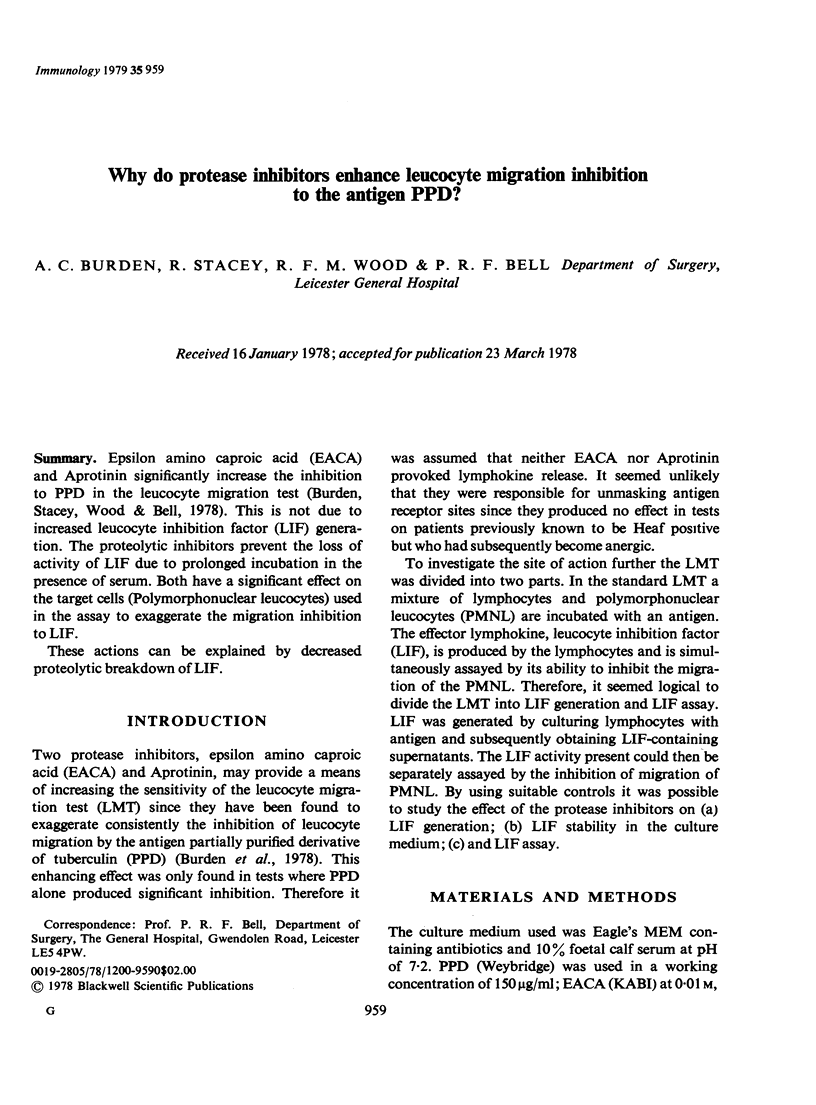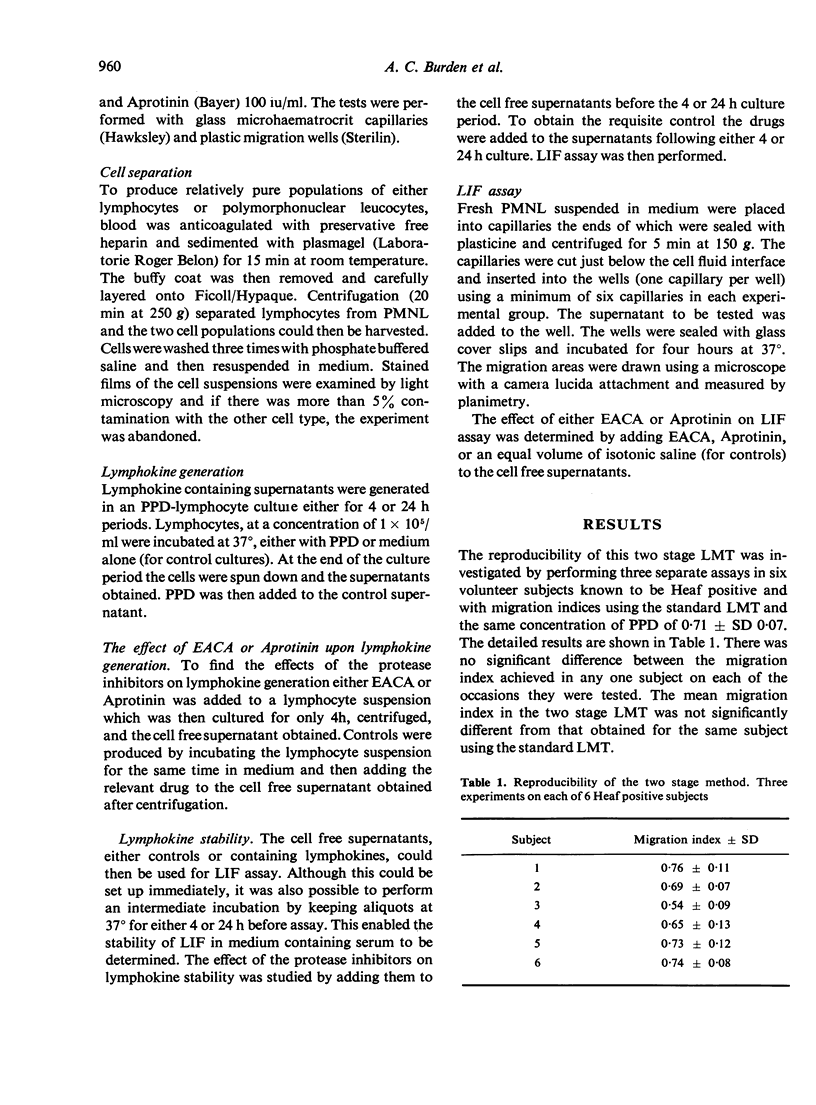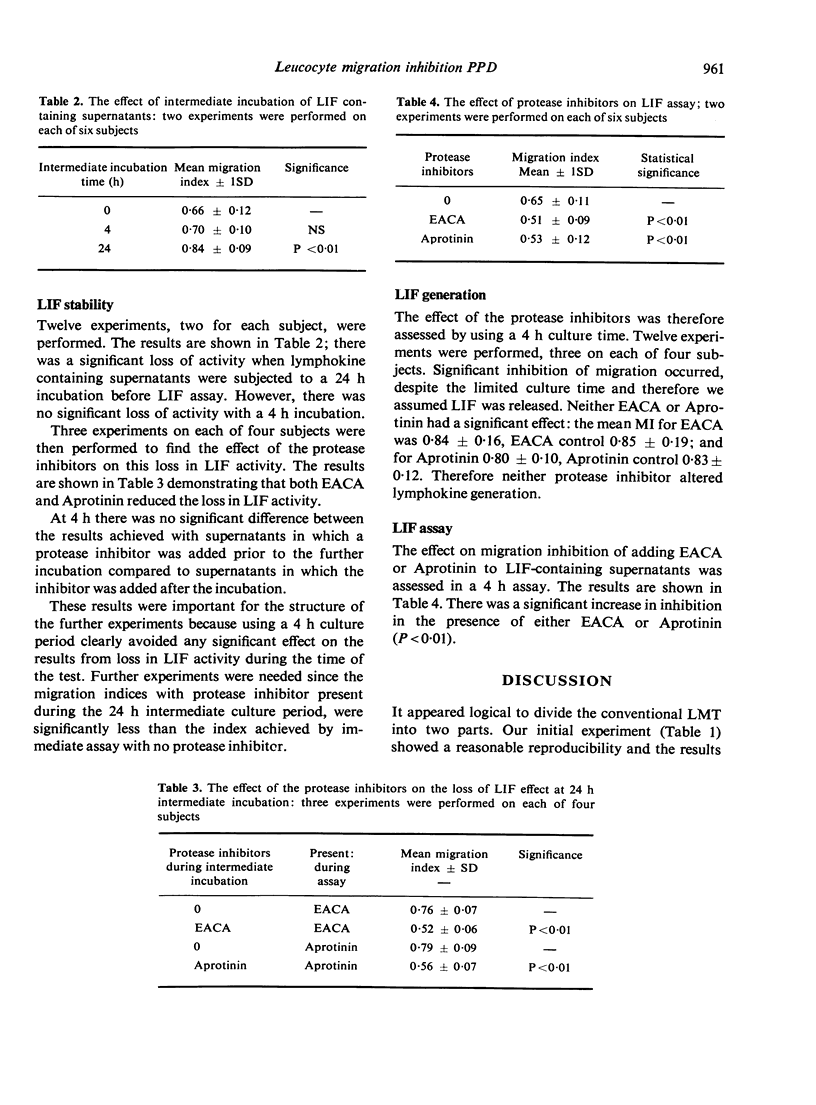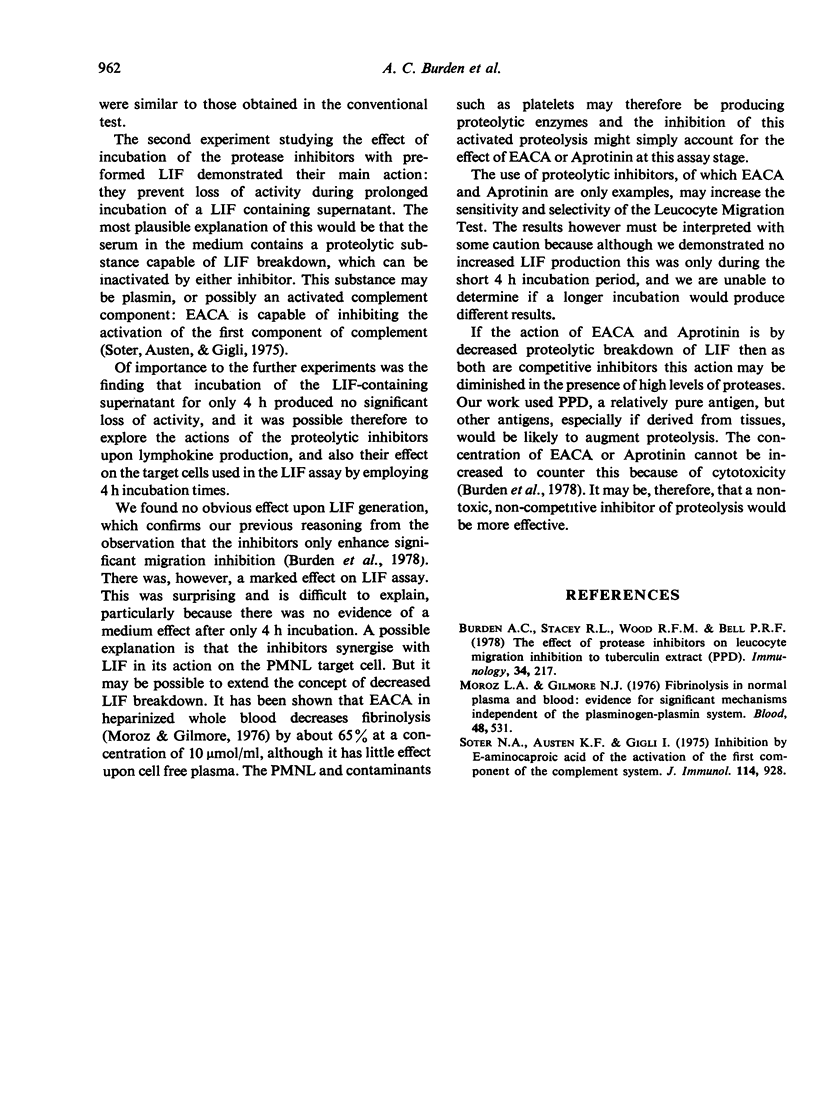Abstract
Epsilon amino caproic acid (EACA) and Aprotinin significantly increase the inhibition to PPD in the leucocyte migration test (Burden, Stacey, Wood & Bell, 1978). This is not due to increased leucocyte inhibition factor (LIF) generation. The proteolytic inhibitors prevent the loss of activity of LIF due to prolonged incubation in the presence of serum. Both have a significant effect on the target cells (Polymorphonuclear leucocytes) used in the assay to exaggerate the migration inhibition to LIF. These actions can be explained by decreased proteolytic breakdown of LIF.
Full text
PDF



Selected References
These references are in PubMed. This may not be the complete list of references from this article.
- Burden A. C., Stacey R. L., Wood R. F., Bell P. R. The effect of protease inhibitors on leucocyte migration inhibition to tuberculin extract (P.P.D.). Immunology. 1978 Feb;34(2):217–221. [PMC free article] [PubMed] [Google Scholar]
- Moroz L. A., Gilmore N. J. Fibrinolysis in normal plasma and blood: evidence for significant mechanisms independent of the plasminogen-plasmin system. Blood. 1976 Oct;48(4):531–545. [PubMed] [Google Scholar]
- Soter N. A., Austen K. F., Gigli I. Inhibition by epsilon-aminocaproic acid of the activation of the first component of the complement system. J Immunol. 1975 Mar;114(3):928–932. [PubMed] [Google Scholar]


